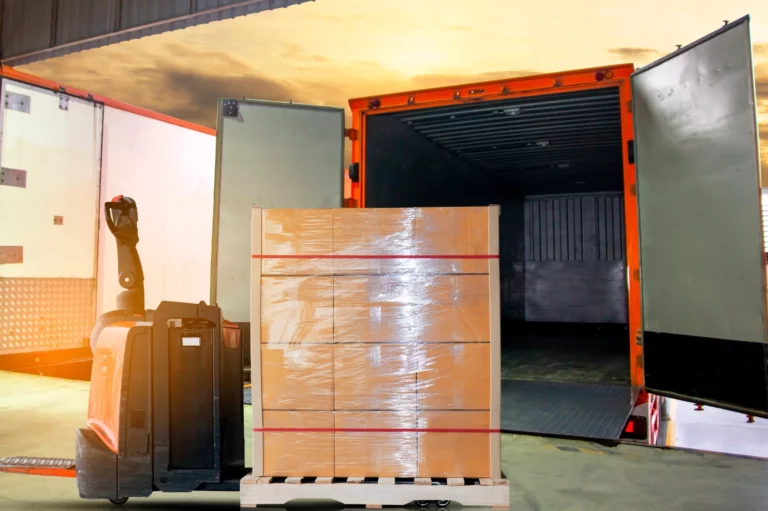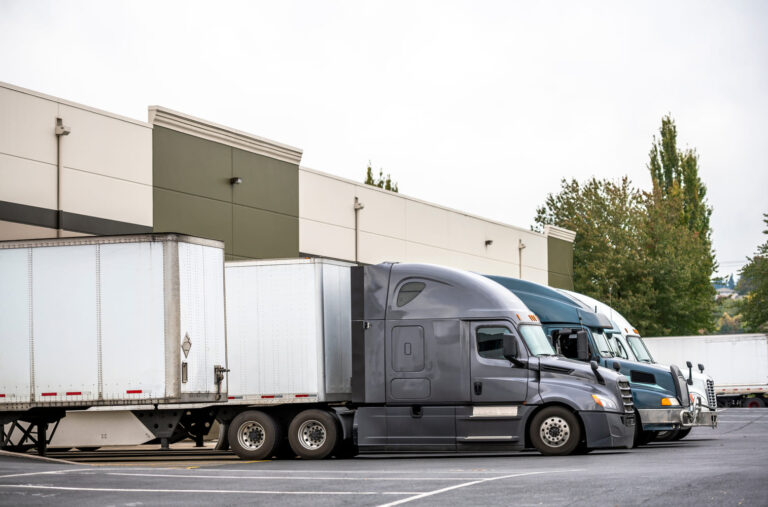Refrigerated Transportation: Keeping Your Goods Fresh and Safe

In today’s fast-paced supply chain, the demand for refrigerated transportation is higher than ever. Businesses need to move fresh produce, dairy, frozen foods, and pharmaceuticals across long distances while preserving their quality. Refrigerated freight shipping (also known as reefer shipping) provides the solution by using temperature-controlled trucks and containers to keep perishable goods transportation safe and fresh during transit. This guide breaks down what refrigerated transportation is, why it’s essential, the types of refrigerated freight and services available, best practices to follow, and how to overcome common challenges – all to ensure your temperature-sensitive shipments arrive in perfect condition.
What Is Refrigerated Transportation?
Refrigerated transportation refers to moving goods in specialized vehicles (often called reefers) that have built-in cooling systems to maintain specific temperatures. In refrigerated truck shipping, insulated trailers with refrigeration units keep cargo within a set temperature range from pickup to delivery. This method is crucial for products that would spoil or degrade if exposed to heat or fluctuating conditions. Modern reefers can cool or even freeze cargo, with advanced thermostats and insulation ensuring consistency throughout the journey.
Fun fact: Refrigerated transport has evolved significantly since the 1800s, when people used ice and salt in rail cars to ship meat and produce. Today’s technology – from compressor-driven cooling units to digital temperature monitors – makes it far easier to ship goods at precise temperatures, drastically reducing spoilage and waste.
A temperature-controlled refrigerated truck (reefer) carrying perishable goods. These trucks are equipped with powerful cooling units and insulation to keep products fresh throughout the trip.
Types of Refrigerated Freight Services
Refrigerated transport isn’t one-size-fits-all. Shippers can choose from different service types depending on shipment size and logistics needs:
- Full Truckload (FTL): An FTL refrigerated shipment uses an entire truck for one shipper’s cargo. This is ideal for large-volume loads that can fill a trailer (typically 20–26 pallets for a 53’ reefer). FTL refrigerated freight shippers benefit from direct routes with no intermediate stops, minimizing handling and chances of temperature deviation. Because the whole truck is dedicated, FTL is often faster and reduces the risk of cross-contamination with other products.
- Less Than Truckload (LTL): Refrigerated LTL combines shipments from multiple shippers in one temperature-controlled truck. If you have a smaller load (just a few pallets of frozen or chilled goods), LTL can be a cost-effective option – you pay only for the space you use. Modern refrigerated LTL services partition trailer space and may allow multiple temperature “zones” so different products (for example, frozen fish at –20°C and chocolate at +5°C) can share a ride. Refrigerated LTL shipping is common for small businesses and distributors who need to ship perishable goods without the volume of a full truckload.
Comparing Refrigerated FTL vs. LTL:
| Service | When to Use | Key Features |
|---|---|---|
| FTL (Full Truckload) | Large shipments (full trailer) going to one destination. | Faster transit, no cargo mixing, higher cost if not full. |
| LTL (Less Than Truckload) | Smaller shipments or multiple destinations. | Cost-sharing with other cargo, slight risk of delays from multiple stops, requires efficient consolidation. |
In addition to road transport, types of refrigerated freight services extend to intermodal and air/ocean shipping. For instance, refrigerated containers are used in ocean freight (for imported fruits or frozen meat exports), and specialized cold-pack containers can be shipped via air for high-value pharma products. Many refrigerated shipping companies offer a range of solutions – from local refrigerated vans for last-mile delivery to large reefer containers for international moves.
Common Goods Requiring Refrigerated Transport
Many refrigerated goods transportation needs arise from products that must stay within a certain temperature range. Below are some common categories of goods that rely on refrigerated shipping, along with their unique considerations:
- Frozen Foods
Items like ice cream, frozen dinners, meats, and vegetables are shipped at sub-zero temperatures (often around –18°C or 0°F) to keep them solidly frozen. Frozen freight shipping requires consistent freezing conditions; even a brief thaw can ruin texture and safety. Reefers carrying frozen goods are set to very low temperatures and have powerful compressors. Shippers often use data loggers to ensure the cold chain wasn’t broken en route.
- Pharmaceuticals & Medical Products
Medicines, vaccines, insulin, biologics, and certain medical test kits must travel within strict temperature bands (sometimes 2–8°C for “cool” or even below –20°C for some vaccines). Pharmaceutical freight often follows the “cold chain” from manufacturing to distribution to ensure drug efficacy. Carriers might use special packaging (insulated boxes, dry ice, gel packs) in addition to refrigerated trucks. Any deviation from the required temp range can result in lost potency or regulatory non-compliance. For example, refrigerated shipping companies handling pharma will provide continuous monitoring and may have backup refrigeration units for safety.
- Fresh Produce, Dairy, Meat & Seafood
These perishable foods are among the most common cargo’s for reefers. Perishable foods transportation usually happens at chilled temperatures just above freezing (e.g. 0–4°C for meat/seafood and produce). Fresh lettuce, berries, or fish must be kept cold and often also need humidity control to prevent drying out. Each product has an optimal range: leafy greens might be shipped around 34°F, whereas bananas prefer around 58°F to prevent chill damage. Specialized produce reefer carriers manage ventilation (to remove ethylene gas for fruits) and use divider curtains when mixing loads. Maintaining these conditions from farm to grocery store is critical – any breakdown in cooling can lead to spoilage or food safety issues.
- Cosmetics & Personal Care
Many cosmetics, skincare products, and even certain chemicals are sensitive to heat. For example, natural cosmetics can spoil or separate at high temps, and some aerosol or chemical products must be kept cool for stability. Refrigerated goods transportation is used for these when standard transit (especially in summer) could degrade the product. Similarly, fine art, wine, craft beer, and antiques are sometimes shipped in climate-controlled trucks to prevent heat or humidity damage. While not food or medicine, these high-value items benefit from temperature control to maintain their integrity.
- Plants & Floral Products
Flowers, nursery plants, and agricultural seedlings often travel in refrigerated trailers to extend their freshness. Cut flowers like roses are typically shipped just above freezing to slow bloom development, arriving fresher to the customer. Too much heat will wilt flowers, and too much cold can brown or freeze delicate petals. Reefers for floral transport sometimes include air circulation features to distribute cooling evenly and remove excess humidity, preventing mold.
Each of these categories highlights why refrigerated transport is vital for protecting different products. Whether it’s preventing chill damage to produce or stopping medicines from overheating, the right temperature makes all the difference.
Benefits of Refrigerated Freight Shipping
Using refrigerated freight services offers several key benefits for businesses that deal with temperature-sensitive items. Here are the primary advantages of refrigerated truck shipping:
- Preserves Freshness & Prevents Spoilage: By maintaining cold temperatures, reefers keep products fresh and safe. Fruits, vegetables, meat, seafood, and dairy all stay at their optimal temperature, which significantly slows bacteria growth and prevents spoilage. This means goods arrive in excellent condition, extending shelf life and minimizing revenue loss from wasted product.
- Meets High Consumer Demand: Year-round availability of fresh and frozen goods is something consumers expect. Refrigerated transportation enables suppliers to meet this high demand by shipping seasonal produce or temperature-sensitive foods across long distances. Grocery stores can stock fresh berries in winter and ice cream in summer from around the world, thanks to a robust cold transport network. This capability directly supports food security and market expansion.
- Enables Diverse Products & Industries: Refrigeration isn’t just for food. Many types of refrigerated freight include pharmaceuticals (like vaccines or insulin), healthcare products, cosmetics, chemicals, and even certain electronics that require climate control. A stable cold environment maintains the efficacy and safety of medicines and the quality of personal care products. The versatility of refrigerated shipping opens opportunities for various industries – from farm-to-table meal kits to biotech – to transport their goods without damage.
- Compliance & Quality Assurance: Quality control is easier with temperature logging and monitoring tools that come with modern reefers. Shippers can demonstrate compliance with safety standards since products are kept within required temperature ranges. This is especially important for regulated goods like medical supplies or food items that must adhere to health guidelines.
In short, refrigerated freight shipping is essential for preserving product quality. It not only protects your brand’s reputation by delivering fresh goods but also lets you tap into markets that were previously unreachable due to distance or climate.
Best Practices for Refrigerated Shipping
- Similar Temperature Needs: Grouping products with similar temperature requirements helps streamline shipments.
- Continuous Monitoring: Reefer trucks come equipped with monitoring tools to track temperature and shipment conditions.
- Efficient Loading and Unloading: Quick handling reduces exposure and the risk of product spoilage during transit.
Challenges and Regulations in Refrigerated Freight
Shipping temperature-sensitive freight isn’t easy. From strict regulations to rising costs, refrigerated transportation comes with unique challenges:
1. Regulatory Compliance
Refrigerated freight must meet strict safety standards. In the U.S., the FDA’s FSMA rule requires clean, pre-cooled equipment, temperature logs, and trained staff. Non-compliance can lead to fines or rejected shipments. Many shippers rely on experienced refrigerated freight shippers or 3PLs to stay compliant with U.S. and international laws.
2. Higher Costs
Refrigerated equipment is expensive to buy and run. Reefers burn extra fuel and require constant maintenance. These costs – plus fees for delays or fuel surcharges – make refrigerated truck shipping 10–20% more costly than dry freight.
3. Equipment Failures & Human Error
If a reefer fails or doors are left open, temperatures rise fast. Carriers use monitoring systems and emergency backups, but human errors like misloading or incorrect settings still happen. Real-time alerts and well-trained drivers help catch problems early.
4. Risk of Delays
Delays from traffic or unprepared receivers can break the cold chain. To avoid this, shippers use cold storage warehouses, rerouting plans, and expedited or team drivers. Planning is key to prevent spoilage.
Maintaining a Seamless Cold Chain (Storage to Delivery)
Cold-chain logistics ensures the safe transportation of temperature-sensitive products through a seamless process that includes storage, transportation, and delivery. It uses refrigerated transportation, thermal packaging, and careful logistical planning to maintain product quality, especially for perishable goods like food and pharmaceuticals.
The cold chain is essential for preserving freshness and preventing spoilage as global trade in perishable items grows. Steps include developing temperature control plans, monitoring storage, transporting goods safely, and ensuring final quality checks.
Additionally, the cold chain supports economic development by making fresh and perishable goods more accessible in both regional and global markets.
Steps of Cold-Chain Logistics
Cold-chain logistics involves maintaining temperature-sensitive products through a series of steps:
- Planning and Design – Ensuring proper temperature zones and packaging.
- Storage – Products are stored in temperature-controlled facilities.
- Packaging – Insulated packaging maintains temperature.
- Transportation – Products are transported using refrigerated vehicles or containers.
- Distribution – Continued temperature control at distribution points.
- Monitoring – Real-time temperature tracking and quality control.
- Delivery – Maintaining temperature until final consumption.
This process ensures product safety and quality.
Choosing the Right Refrigerated Shipping Partner
Choosing the right partner for refrigerated transportation is critical to keeping your perishable goods safe. From experience to technology, here’s what to look for when selecting refrigerated shipping companies or 3PLs.
Experience and Expertise: Work with refrigerated freight shippers who have a strong track record in handling temperature-sensitive freight. They should be familiar with cold chain regulations, industry standards, and common risks—offering proactive solutions and ensuring minimal product loss.
Network and Capacity: A reliable partner should have a wide network of cold storage facilities and refrigerated trucks in key locations. This provides the flexibility to reroute shipments and access temperature-controlled warehousing near your delivery zones. For example, OLIMP Warehousing connects shippers with vetted cold storage across North America.
Technology for Visibility: Choose providers offering real-time tracking of both shipment location and temperature. Dashboards and alert systems help identify issues early and allow for quick response—crucial in avoiding spoilage and meeting customer expectations.
Comprehensive Services: Look for end-to-end cold chain solutions, not just refrigerated truck shipping. A 3PL like OLIMP Warehousing can handle warehousing, cross-docking, and final delivery—all on one platform. Fewer hand-offs mean better accountability and smoother communication.
Reliability and Backup Plans: Ask how the provider handles equipment failure or delays. Trusted refrigerated shipping companies have contingency plans like spare reefer units or backup trailers. Check reviews and performance records for indicators like low spoilage rates and high on-time delivery.
Stay Cool with OLIMP Warehousing
Managing refrigerated transportation doesn’t have to be complicated. OLIMP Warehousing makes it easy to connect with reliable carriers and cold storage providers tailored to your shipping needs. With a vetted network and seamless cold chain coordination, we keep your goods fresh and your customers happy.
→ Request a quote today and get refrigerated freight shipping you can count on.
You may be interested in

The Ultimate Guide to Cross-Docking: Definition, Types and Benefits
Cross-docking is a logistics strategy where products from inbound vehicles are immediately transferred to outbound transport with little or no warehousing. In other words, goods “cross the docks” at a specialized facility instead of entering long-term storage. By minimizing handling and storage time, cross-docking accelerates delivery and reduces supply chain costs. For example, a cross […]

Box Truck Sizes: Comparing Length, Volume & Payload
Box trucks (also called cube or straight trucks) have a rectangular cargo box mounted directly on the truck chassis behind the cab. They are the workhorses of logistics, used for local deliveries, moving household goods, and regional freight transport. Box truck sizes vary greatly: typical lengths range from about 10 feet up to 26 feet […]

Dock-to-Dock Delivery: A Comprehensive Guide
Dock-to-dock delivery means shipping goods straight from one loading dock to another with no intermediate stops. In other words, a shipment is picked up at the origin dock and delivered directly to the destination dock, bypassing extra handling or storage. This direct approach cuts out delays and extra labor – making deliveries faster, cheaper, and […]
Ready to streamline your warehousing needs?
Request a quote today and discover how OLIMP's tailored solutions can optimize your operations